Esfahan Farmers Protest For Water Rights
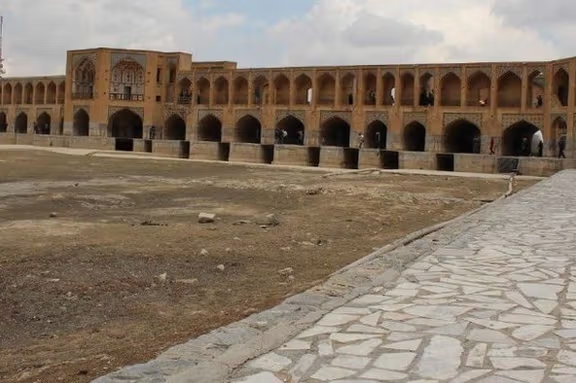
Farmers in Esfahan (Isfahan) have held gatherings within the past few days to protest their water rights, demanding the reopening of the Zayandeh-Rud River.

Farmers in Esfahan (Isfahan) have held gatherings within the past few days to protest their water rights, demanding the reopening of the Zayandeh-Rud River.
The river has been a vital source for orchard irrigation in western Esfahan and agricultural use in the east.
In the current Iranian year that began in mid-March, eight separate water releases from the Zayandeh-Rud were carried out to irrigate crops and gardens in western Esfahan.
However, any potential continuation will rely on the formation of a new drought mitigation committee.
In recent days, farmers in eastern Isfahan have joined the protests, echoing their counterparts' demands for the reopening of Zayandeh-Rud. The river, once a permanent waterway, has been transformed into an irrigation channel with sporadic water flow.
Environmental activists and experts are voicing concerns about the detrimental impact of the intermittent management, not only on the river's ecosystem but also on the broader environment.
In recent decades, recurrent droughts and the extensive utilization of underground water and rivers by the agriculture and industrial sectors have significantly aggravated the water scarcity issue in Esfahan in central Iran.
The emphasis on achieving self-sufficiency in agriculture, which includes the cultivation of water-intensive crops like rice and other grains, has also been identified as a contributing factor to the region's water challenges.
Supreme Leader Ali Khamenei, in 2000 and 2001, actively promoted population growth and the attainment of self-sufficiency in wheat and rice production as the primary agricultural objectives, further straining resources.
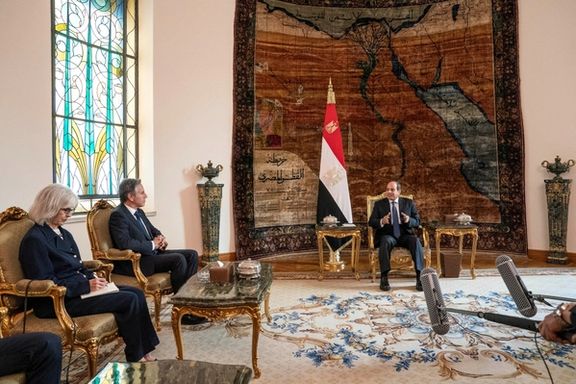
US Secretary of State Antony Blinken will return to Israel on Monday, a senior State Department official said, extending his Middle East shuttle diplomacy by a day.
As Israel prepares for a ground offensive in the Gaza Strip, the United States works to stop the conflict from spreading.
Israel has vowed to annihilate the militant group Hamas in retaliation for a terror rampage by its gunmen in Israeli towns eight days ago, butchering men, women and children and seizing hostages in the worst attack on civilians in the country's history.
The top US diplomat arrived in Israel on Thursday and has since visited six Arab countries. He is currently in Egypt and also met with President Abdel Fatah al-Sisi.
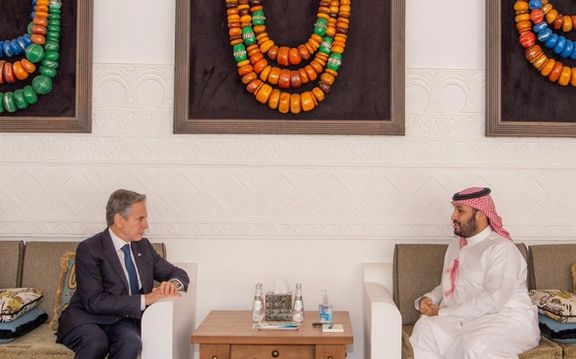
Washington has grown increasingly worried about the fighting spreading across the region and has warned Iran to stay out of it. Blinken has sought the cooperation of Arab allies, as well as China, a country with influence on Tehran, to contain the conflict.
But late on Saturday, Iran warned of "far-reaching consequences" if Israel's bombardment was not stopped.
US National Security Advisor Jake Sullivan on Sunday told CBS News that the Biden administration is concerned about Iran and its proxy forces, such as Lebanon’s Hezbollah getting involved in the war.
Axios reported on Saturday that Iran’s Foreign Minister Hossein Amir-Abdollahian told UN officials that Iran will have to respond if the Israeli invades the Gaza Strip. The foreign minister, who was in Qatar on Sunday, in an interview told Al Jazeera that if Israel attacks that is Israeli attacks on Gaza do not stop, the conflict can spread to new fronts, and the likelihood of such a development increases each minute.
Before departing for Cairo, Blinken held talks with Saudi Crown Prince Mohammed bin Salman, one of the most powerful leaders of the region, a meeting the top US diplomat described as "very productive."
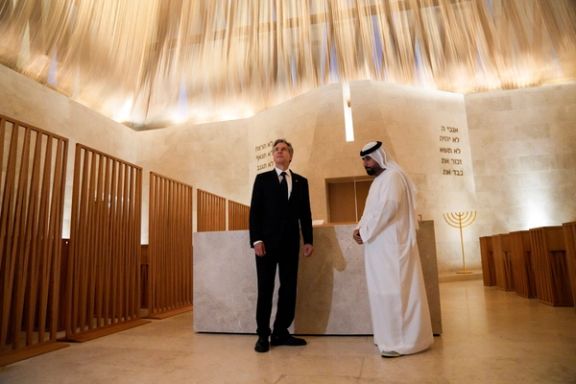
In the meeting, the Saudi crown prince stressed the need to find ways to stop the conflict, and respect international law, including by lifting the Israeli blockade on Gaza, Saudi state news agency SPA reported.
"(The crown prince stressed the need to find) a peace path to ensure that the Palestinian people obtain their legitimate rights and achieve just and lasting peace," SPA said.
A US official said the meeting lasted for just under an hour and took place at the crown prince's private farm residence.
"The Secretary highlighted the United States' unwavering focus on halting terrorist attacks by Hamas, securing the release of all hostages, and preventing the conflict from spreading," State Department spokesperson Matthew Miller said in a statement.
"The two affirmed their shared commitment to protecting civilians and to advancing stability across the Middle East and beyond," Miller added.
Blinken on Saturday met Saudi Foreign Minister Prince Faisal Bin Farhan in Riyadh. Before their meeting, Blinken said protecting civilians on both sides of the conflict was vital.
"And we're working together to do exactly that, in particular working on establishing safe areas in Gaza, working on establishing corridors so that humanitarian assistance can reach people who need it."
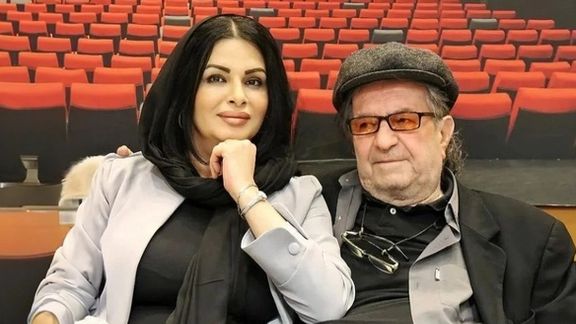
The gruesome murder of celebrated Iranian director Dariush Mehrjui and his wife at their home near Tehran has caused shock in Iran with speculation abounding about the case.
Mehrjui and his wife, Vahideh Mohammadifar, a screenwriter and costume designer, were discovered brutally mutilated in their own home in the Fardis district of Karaj, located approximately 30 kilometers west of the capital, Tehran, on Saturday night.
According to Faraz Daily news website, the perpetrators cut the throats of the pair and broke their arms and legs, and inflicted severe injuries on them. Mehrjui’s head was clobbered with a blunt object and his wife was almost beheaded. Mohammadifar’s arm was also bent from the elbow to the back, and her wounds were deeper, leading the daily to the conclusion that the attackers had a deeper animosity towards his wife.
Mohammadifar had recently reported a confrontation with an apparent burglar outside their home and had received direct threats from the unidentified individual wielding a knife.
Information obtained by Iran International reveals that the Mehrjui couple had been threatened with death multiple times by unidentified individuals in recent days. Although Mehrjui had reported these threats to the police on multiple occasions, the police did not take them seriously.
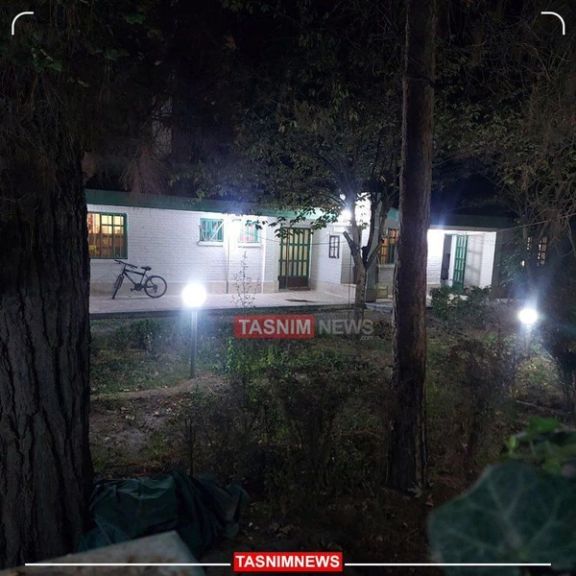
Tasnim news agency, affiliated with the Revolutionary Guards, reported that despite Mohammadifar's social media posts about the threats, the family had not officially filed a complaint with the police. Nasser Khaki, the town's prosecutor, rejected initial reports about beheadings, stating, "This couple were killed due to suffocation, severe bodily blows, and sharp bodily injuries, presumably from a knife."
Khaki claimed that the murders happened between 9pm and 10pm, adding, “We know that the murders likely occurred after opening the house's safe, and that other signs of theft were also evident, and even Mohammadifar's gold jewelry was taken from her hands.”
According to Mona, the daughter who discovered her parents dead, her father had talked to her on the phone at 8.50pm, but when she arrived home at 10.25pm her parents were dead.
In an Instagram post that was apparently published several months ago, Mohammadifar claimed that the burglar who threatened her with a knife had a non-Iranian accent. This detail has led to speculation online suggesting that the perpetrators might be Afghan migrants who live in large numbers in the area.
According to Fars news agency, another IRGC-linked media outlet, four suspects have been arrested for the murder case so far, but none of the detained individuals were foreigners. "Given the nature of the crime and its violence, there is a possibility of personal vendetta. It's possible that the partial theft of gold and mobile phones was carried out with the aim of disguising the true motives," the agency claimed.
There is a conspiracy theory circulating online that the murders are intended to exploit the growing concern about the increasing number of Afghans in Iran and the reported violence, both by them and against them. Mohammadifar mentioned in another Instagram post that she was accused of racism because she complained about being threatened by a foreigner.
Another theory circulating online claims the murders were the continuation of the politically motivated serial assassinations – also known as Chain murders of Iran, a series of 1988–98 murders and disappearances of Iranian dissident intellectuals.
Mehrjui's notable stance against censorship and his vocal opposition to security measures imposed on Iranian cinema were well-documented. In a video message addressing the cancellation of the screening of his film “La Minor” (A Minor), he asserted, "I can no longer endure this. I will mobilize and, alongside my team, stage a protest at the Ministry of Culture. I am ready to fight."
Fans, friends, and coworkers of Mehrjui have expressed their sadness on social media, remembering his work as a pivotal figure in Iran's film new wave during the early 1970s.
"We have just learned of the tragic death of Iranian film director Dariush Mehrjui and his wife, both brutally murdered by thieves," said Jean-Marc Thérouanne, the director of the Vesoul International Film Festival of Asian Cinema in France, in a statement. He noted that several of Mehrjui's movies were screened at Vesoul.
In 1959, Mehrjui moved to the United States to study at the UCLA’s Department of Cinema. He studied there under Jean Renoir. He received many awards, including a Silver Hugo from the Chicago International Film Festival in 1998 and a Golden Seashell at the San Sebastián International Film Festival 1993. Most of Mehrjui’s films are inspired by literature and adapted from Iranian and foreign novels and plays.
In 1959, Mehrjui moved to the United States to study at UCLA's Department of Cinema. He studied there under French cinema giant Jean Renoir. He received numerous awards, including a Silver Hugo from the Chicago International Film Festival in 1998 and a Golden Seashell at the San Sebastián International Film Festival in 1993. Most of Mehrjui's films are inspired by literature and adapted from Iranian and foreign novels and plays.
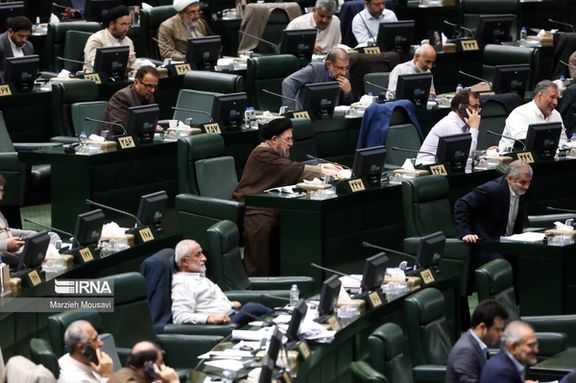
Iran’s parliament has published a report that raises concerns about satellite internet technology, proposing criminalizing US-based Starlink in the Islamic Republic.
The report, titled "Analysis of the Status of Low-Orbit Satellite Internet Services in Iran," delves into the specific case of Starlink in Iran and worldwide, saying buying and selling the equipment in the country must be banned.
In the 30-page report, the authors present the governmental perspective on controlling satellite internet technology, considering both its current and future implications. One of the most important aspects of the report is the suggestion to use punitive measures and criminal policies to minimize perceived "threats" and to adopt innovation "without compromising national sovereignty."
The report describes Starlink, a US-based company under SpaceX, as a project with “military objectives,” posing potential threats to the national security of other countries.
One of the long-term scenarios outlined in the report for controlling access to satellite internet services involves the creation of a consortium with China and Russia, key allies of the regime.
In the last twenty years, Iran has enforced severe censorship policies on internet access, curtailing the freedom of its citizens to access information. The measures include the blocking of both foreign and domestic websites. Nonetheless, individuals have found ways to bypass these constraints through the widespread adoption of Virtual Private Networks (VPNs).
Following the announcement of US sanctions exemptions for Starlink, access to the satellite internet services of this company became available to residents of Iran last October. Elon Musk, the CEO of SpaceX, later confirmed that around 100 Starlink terminals had become operational in Iran.
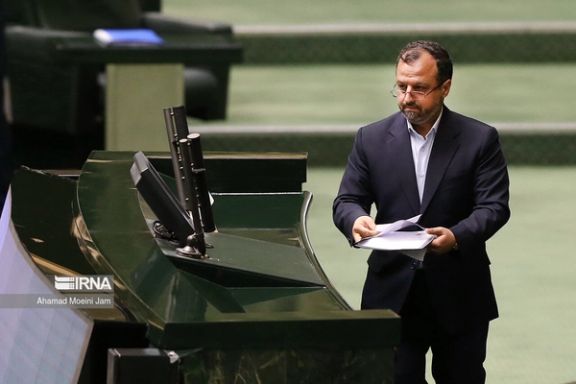
The Iranian Ministry of Economy has provided a formal response to recent speculations regarding a potential shift in Iran's stance towards the Financial Action Task Force (FATF).
The ministry's statement on Sunday states, "The Islamic Republic of Iran's policy concerning the FATF remains unaltered."
Any modifications to this approach, the statement clarifies, must be subjected to scrutiny by the appropriate authorities.
The FATF, or the Financial Action Task Force, is an initiative established by G-7 nations to combat money laundering and the financing of terrorism. The recent resurgence of discussions regarding Iran's approach to FATF coincided with the international scrutiny that followed a violent attack by Hamas on Israel, leading to criticism of Iran's support for the organization.
On Saturday, a prominent politician in Tehran hinted that President Ebrahim Raisi's administration might consider revisiting four bills related to Iran's potential adherence to FATF conventions. The four bills have lingered in Iran's legislative process since 2017, facing opposition, especially from hardliners. They encompass measures for joining the convention against organized crime, amending the anti-money laundering law, accepting the convention against financial support for terrorism, and amending the law against financial support for terrorism.
The statement concludes by making a plea to the media, urging them to approach the matter with a “technical perspective, devoid of political bias.”
Opposition to the bills from hardliners has been based on the argument that their acceptance would constrain Iran from providing financial support to groups like Hamas, Islamic Jihad, and Hezbollah, which are designated as terrorist organizations by numerous countries.
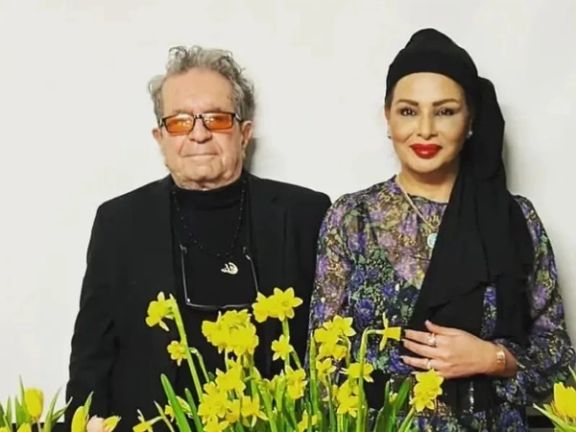
People and media in Iran have been shocked by the stabbing death of director Dariush Mehrjui and his wife, Vahideh Mohammadifar, in their home near Tehran.
Local law enforcement authorities are currently investigating the circumstances surrounding the deaths, with the motive for the killings yet to be determined.
On Saturday evening, the police said the pair were stabbed to death in the neck and body in a gruesome incident involving multiple individuals.
Mona Mehrjui, the daughter of the director, found their bodies when she visited her father's home on Saturday night in Karaj, approximately 30 kilometers west of the capital, Tehran.
Mohammadifar had recently reported a burglary outside their home and direct threats from an individual brandishing a knife. She had also contacted the police regarding her concerns.
Mehrjui's notable stance against censorship and his vocal opposition to security measures imposed on Iranian cinema were well-documented. In a video message addressing the cancellation of the screening of his film La Minor, he asserted, "I can no longer endure this. I will mobilize and, alongside my team, stage a protest at the Ministry of Culture. I am ready to fight."
He was a renowned figure in Iranian cinema and was widely recognized for his contributions as a filmmaker and screenwriter. He was a pivotal figure in the Iranian New Wave cinema and was celebrated for his works, including The Cow, Mr. Naive, The Postman, The Cycle, Hamoun, Leila, and Pari.